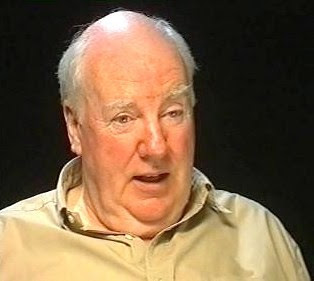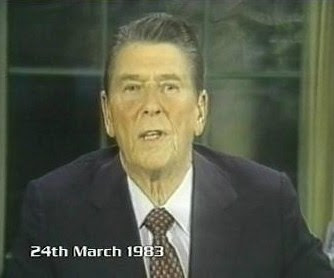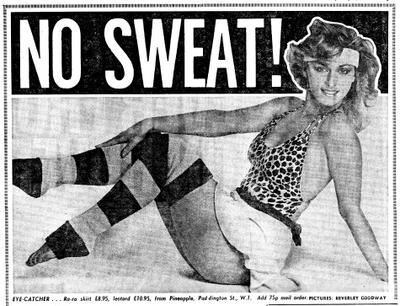 Troy Kennedy Martin
Troy Kennedy MartinOne of the most challenging, and the most thought provoking TV serials of the 1980s, nay of all time, was the BBC's Edge Of Darkness (1985).
Looking around the internet, I see some pretty inaccurate information about this brilliant show floating about (with the Net that's situation normal!), so I thought it might be a good idea to get the story about the show's origins, and journey to the screen, from the man who created it, Troy Kennedy Martin, and the show's producer, Michael Wearing.
This drama tapped into environmental concerns of the 1980s like no other, and was a strange but hugely compelling brew. It made me shiver. It made me laugh. It didn't only make me cry. I sobbed. This was television as I'd never known it could be. And sadly haven't seen since.
Interviewed for Magnox: The Secrets of Edge Of Edge of Darkness, an "extra" on the 2003 DVD release of the show, Troy Kennedy Martin recalled how the idea for the show came about in the early-to-mid 1980s UK...
"We had the Cold War. The Falklands. The Nuclear State. The prospect of a miners' strike. Greenham Common. It was Thatcher's Britain. At the BBC, there was no political dimension in their popular drama whatsoever. And I was really depressed about it, as indeed were other writers that I knew. And so, I said to my closest colleagues: 'The only thing one can do is actually write stuff that one knows is not going to get made, but at least we'll get it out of our system.' And that's how I started to write Edge Of Darkness. I didn't really think that it stood much of a chance of being produced.
"The interesting thing is that I'd written the first two episodes without an ending, but which were slightly to do with the miners. When it was commissioned by the BBC, surprisingly enough, Jonathan Powell had moved into a position of power there and I'd done an adaptation for him. And, as a result, he said: 'I've got this new job, it's starting next October. Could you have Edge Of Darkness ready by then? And I said 'yes', and he said: 'Well, I'll schedule it.'
"I was determined that it would have a real political element, and at the beginning I thought that the miners' strike might provide me with one. Unfortunately, that didn't really work out, so I became more interested in the nuclear option and the Nuclear State, on which there are half-a-dozen books, but that didn't really take off until I found the 'Star Wars' speech of Reagan."
 Ronald Reagan, "Star Wars" speech, March, 1983: "What if free people could live secure in the knowledge that their security did not rest upon the threat of instant US retaliation to deter a Soviet attack? That we could intercept and destroy strategic ballistic missiles before they reached our own soil or that of our allies?
Ronald Reagan, "Star Wars" speech, March, 1983: "What if free people could live secure in the knowledge that their security did not rest upon the threat of instant US retaliation to deter a Soviet attack? That we could intercept and destroy strategic ballistic missiles before they reached our own soil or that of our allies?In Edge Of Darkness, the mystic and the mythic jostled with reality.
Troy Kennedy Martin again:
"I read the book by [James] Lovelock about Gaia hypothesis and the Gaia hypothesis really said that the earth was just one single organism and that every aspect in it was kind of planned or focused on creating the maximum conditions for life."
Producer Michael Wearing: "I was talking to Jonathan Powell, head of the [BBC] Series Department, who wanted me to go to work in serials and he offered me two possibilities: one was the Tom Sharpe thing, which was Blott On The Landscape, and he said: 'I've got this altogether more tricky proposition because I've commissioned Troy Kennedy Martin to write something' - which was then called Magnox.
"Troy was somebody whose originality and ideas needed to be treated with great respect, you didn't impose lip theories of how to resolve this story at all, and of course the more I understood from talking to him when we started the filming process about what was at stake, the more mind blowing it became."
 Police officer Ronald Craven (Bob Peck) faces sudden tragedy when his daughter, Emma (Joanna Whalley) is shot dead. But has she really left his life? Are the visions of her he communicates with products of his imagination or Emma's ghost?
Police officer Ronald Craven (Bob Peck) faces sudden tragedy when his daughter, Emma (Joanna Whalley) is shot dead. But has she really left his life? Are the visions of her he communicates with products of his imagination or Emma's ghost?
And why was she killed? Was it something to do with GAIA, the environmental organisation she was involved with?
 Emma: "You've got to be strong like a tree - don't break! Please, Dad, don't break!" Bob Peck did not agree with the idea that his character should end up as a tree.
Emma: "You've got to be strong like a tree - don't break! Please, Dad, don't break!" Bob Peck did not agree with the idea that his character should end up as a tree.
 CIA agent Darius Jedburgh (Joe Don Baker): "Get it whilst it's hot!"
CIA agent Darius Jedburgh (Joe Don Baker): "Get it whilst it's hot!" "Hey, wassamatter? You don't wanna be part of the new age of plutonium lunacy?"
"Hey, wassamatter? You don't wanna be part of the new age of plutonium lunacy?"
Complete with a haunting musical score by Eric Clapton and Michael Kamen, Edge Of Darkness is a serial that, if you've never seen it before, you really should.






























































